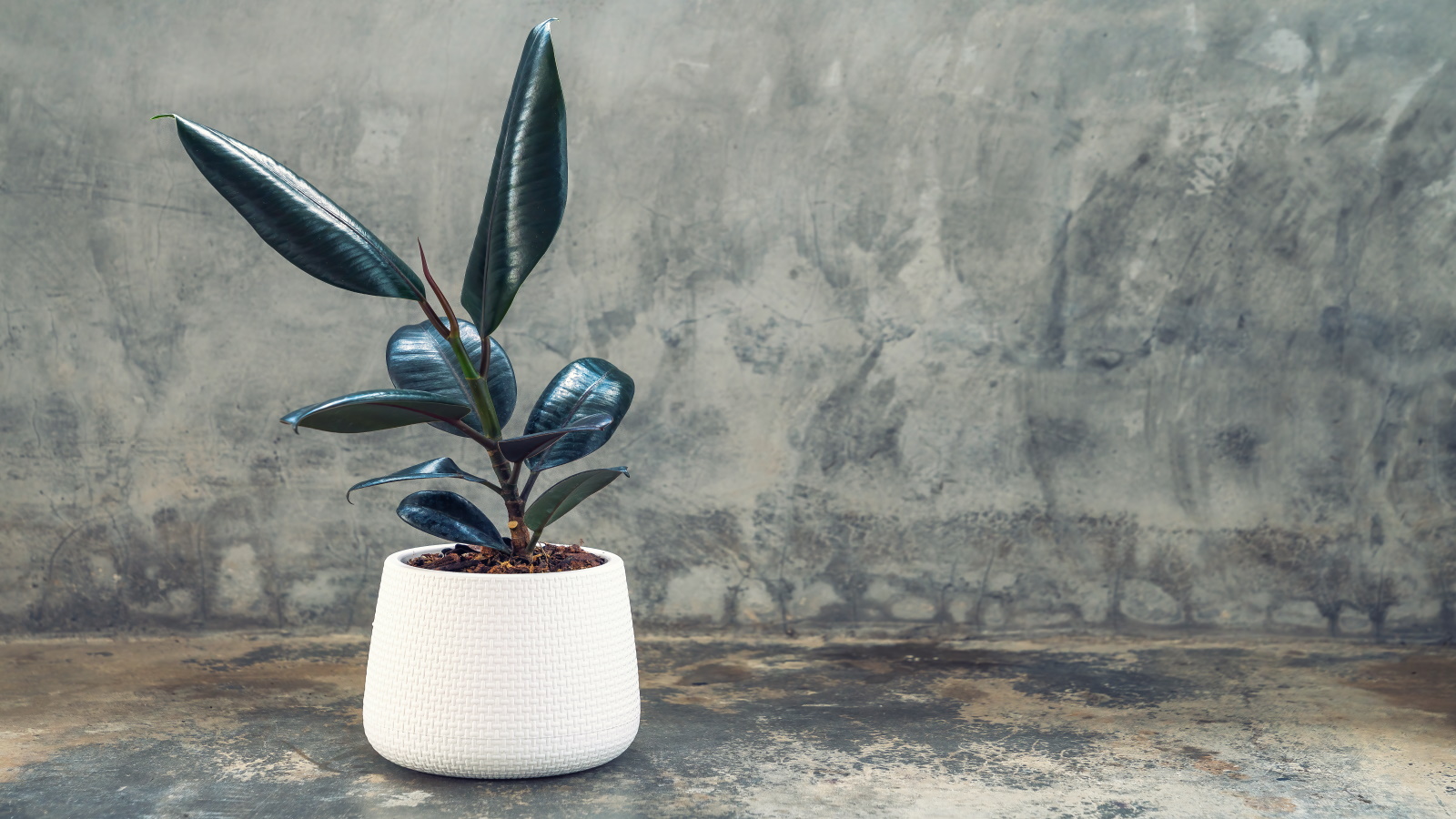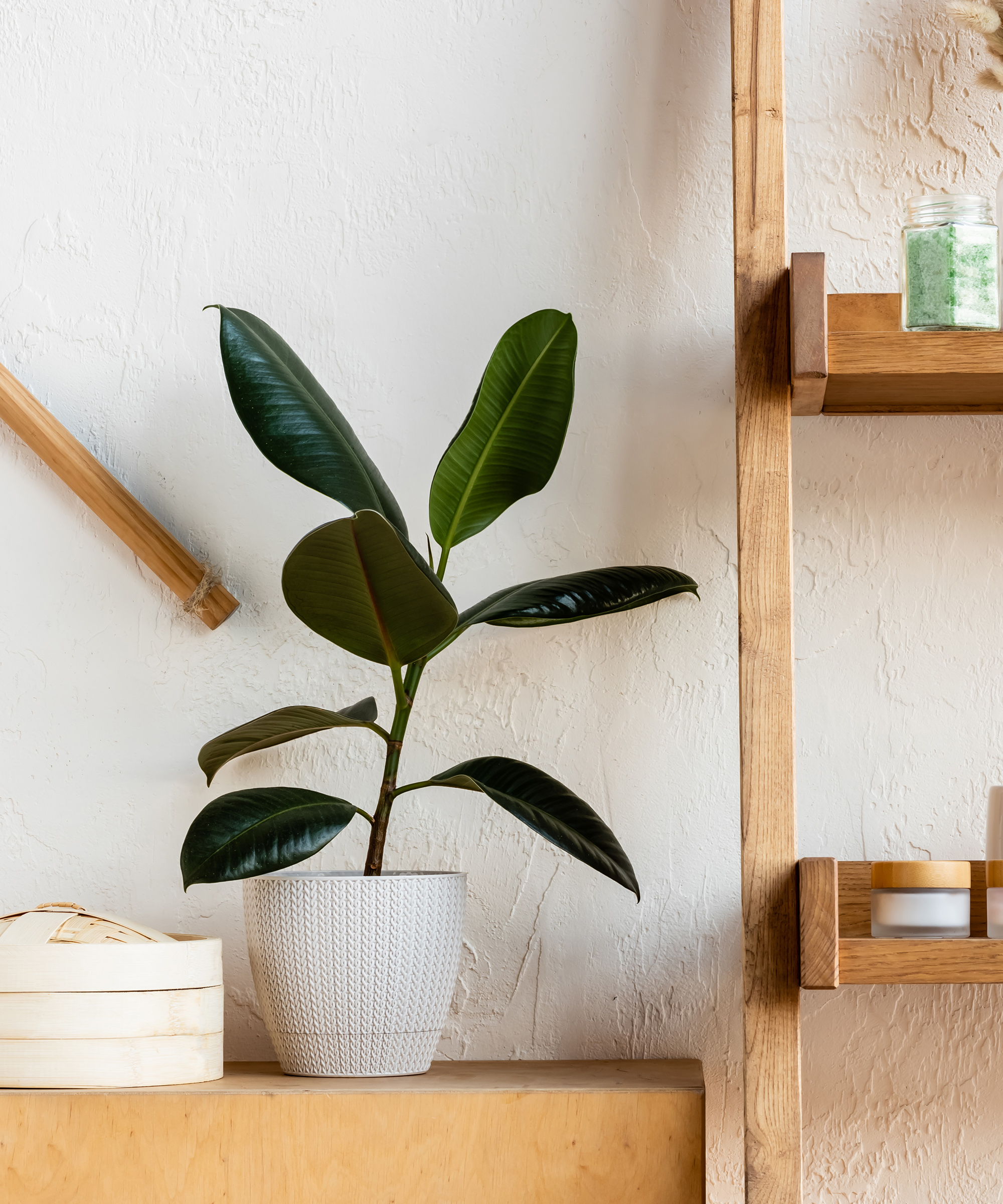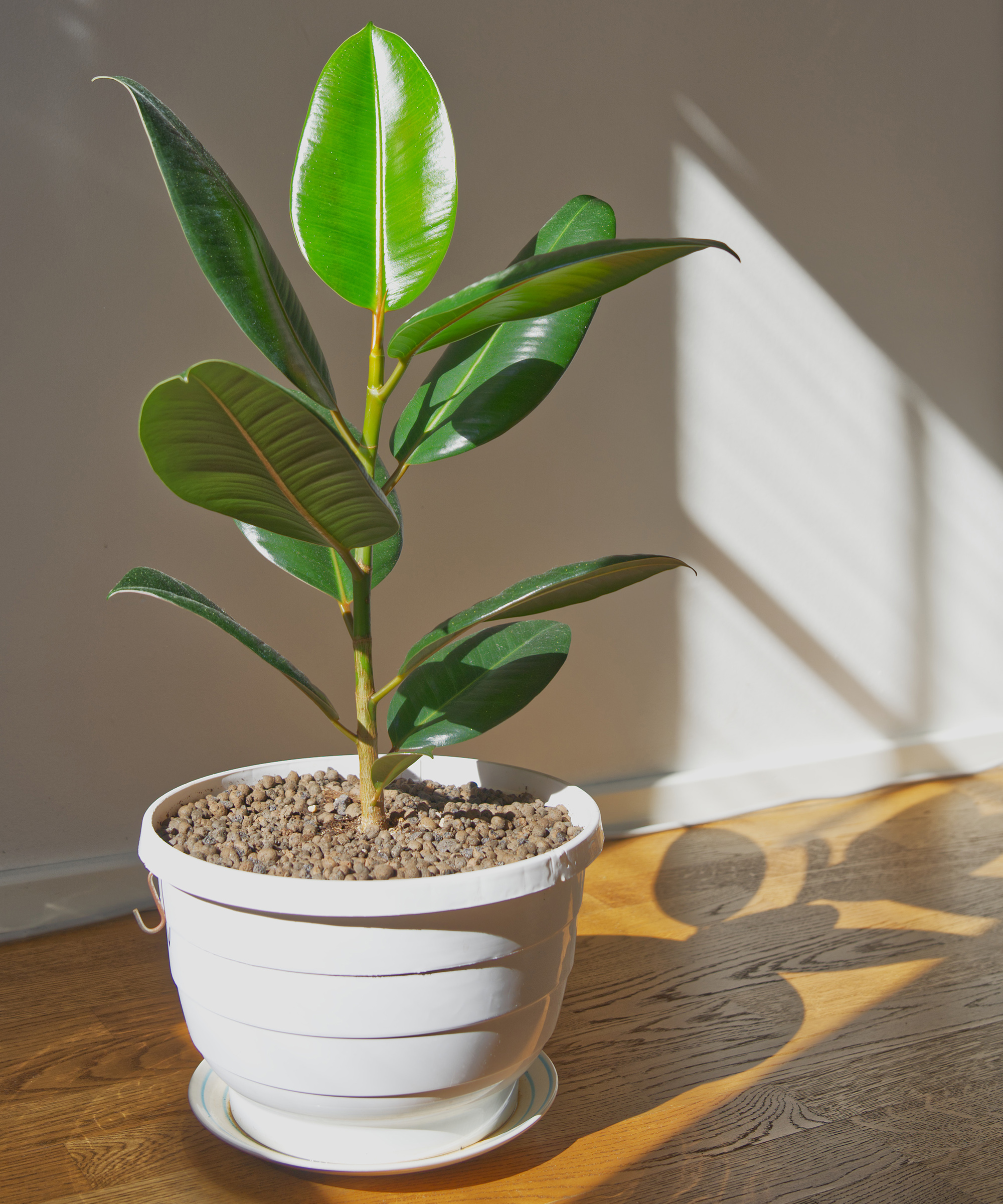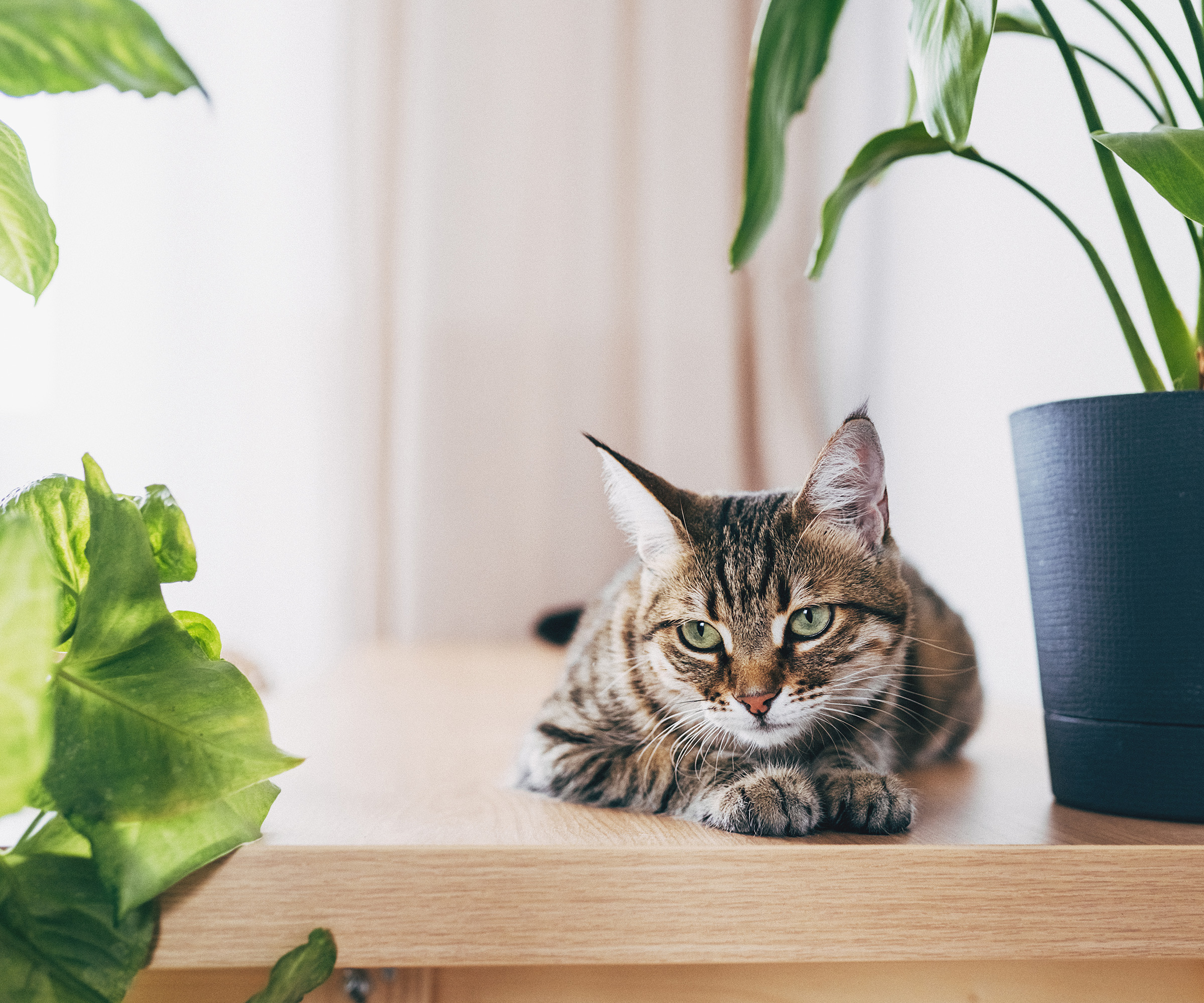
Rubber trees, Ficus elastica, also known as rubber plants, make wonderful indoor plants. But when it comes to choosing indoor plants for your home, it's important to make sure they fit with your lifestyle.
And not just in regards to their maintenance requirements. Certain indoor plants can be toxic when ingested, which is fine if you are living in a pet-free home, with adults and grown up children. But if you have a cat or dog, or young children running around, there are certain safety considerations that have to be made with indoor garden ideas. Some plants can be toxic when ingested and others can cause irritation to the skin when handled.
'Rubber trees are considered to be plants that are toxic to cats,' Autumn Hilliard-Knapp of Perfect Plants explains. 'They are mildly toxic, and ingesting this plant may cause an upset stomach, vomiting, diarrhea, and discomfort in cats but is not typically fatal. She tells what to do if your cat has ingested a part of this plant.

Are rubber trees toxic to cats?
First off, it's important to clarify that we are talking about the rubber tree, or rubber plant with the genus ficus elastica, which is toxic. However the American rubber plant, also known as pepper face, genus peperomia obtusifolia, is not toxic, according to the ASPCA.
What happens if a cat eats a Rubber Plant?

'The leaves, roots, and stems of this fast-growing indoor plant contain toxic compounds that are poisonous to cats,' says Autumn. If you have a rubber tree plant and you notice that your cat has nibbled at any of these parts, the first thing to do would be to call your veterinarian.
'If a cat eats a rubber plant, it can cause a range of symptoms such as vomiting, upset stomach, and diarrhea,' she continues.
'If you suspect your cat has ingested a rubber plant, I would suggest closely monitoring them and calling your veterinarian to be safe,' she says. Do this for any toxic indoor plant unless you know it to be a pet safe indoor plant.
Shop cat-safe indoor plants
This is a tough plant for inside and out in the backyard.
Will cats eat a rubber tree plant?

If you are considering buying this low maintenance indoor plant and you have a cat, you might be wondering whether your cat will be interested in eating it, or will it leave it alone. Autumn tells us that it's probably not worth the risk.
'Cats are known to be curious and may try to eat or chew on houseplants, including rubber tree plants. While some cats may not be interested in rubber plants, others may be attracted to their shiny leaves and unique texture,' she says.
'It is important to keep houseplants out of reach of cats to prevent accidental ingestion,' she says. If there was an area of your home which you knew your cat couldn't access, then you might wish to have a rubber plant.
But again you would have to ask yourself if it's worth the risk, as rubber plants drop leaves sometimes. You might prefer to research if there are alternative cat safe indoor plants that you could opt for instead.
FAQs
What is the most toxic plant to cats?
'While there are many plants that are toxic for cats, some of the most poisonous include lilies, azaleas, and sago palms. Ingestion of these plants can cause severe symptoms such as kidney failure or even death,' says Autumn Hilliard-Knapp of perfect Plants.
'It is important to research any plants that you plan to keep in your home and ensure that they are safe for pets,' she says.
Cats aren't the only pets you have to look out for when it comes to choosing plants. If you are a dog owner, you will likely want to avoid any poisonous plants for dogs in your backyard, too.







